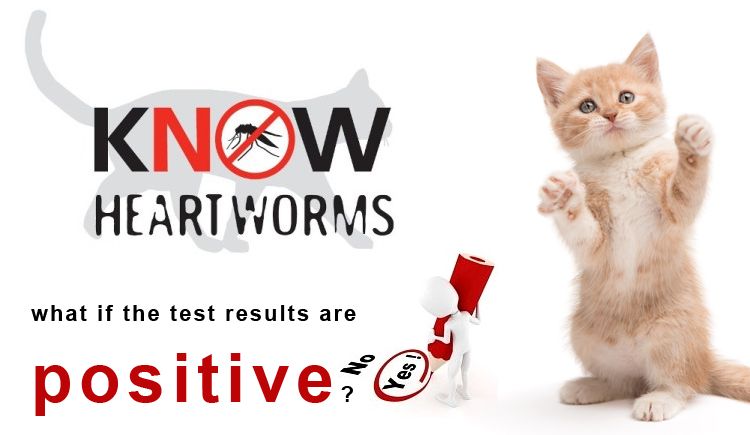Heartworms are transmitted by mosquitoes from host-to-host. If the surroundings have mosquitoes around, your kitty is as much at threat as a dog can be for heartworm infestation. Though heartworms can affect both, cats and dogs, the disease caused by them in cats is totally different from the disease in dogs. According to the American Heartworm Society, felines are the atypical hosts for heartworms and most worms are not able to survive to the adult stage.
As such, it is very difficult to detect heartworm infestations in dogs, where the worms reach their adult stage. Therefore, in case of cats, where the worms usually don’t reach their adult form, it is even more difficult to know the truth about the heartworm disease except for regular checkups. However, what if your kitty tests positive for a heartworm infestation? Let’s check it!
Things to consider if your feline tests positive for heartworm infestation!
Unlike dogs, the cat is not a favorable host for heartworms. Although some infections are cured without any external help, they can damage the respiratory system of cats. Before you look out for the things to do post the positive results for the heartworm infestation, these symptoms may help you find out if your feline is infected with heartworms.
Cats may either show very subtle or very dramatic signs when infected with heartworms. Symptoms may include coughing, asthma-like attacks, periodic vomiting, lack of appetite, or weight loss. It is recommended to get veterinary advice as soon as you see these signs in cats. If these tests are positive, these are the things to consider!
- Diagnosis: With the presence of just one or two heartworms, the cat can get seriously ill. A thorough diagnosis that reflects the presence and size of the heartworms is required. This may include a physical exam, an X-ray, a complete blood count, several kinds of blood test and maybe an ultrasound. Getting these things done should be the first thing on the list after your kitty is known to be carrying heartworms.
- Treatment: This may sound weird, but unfortunately, there is no approved drug therapy for heartworms in cats. The only thing that you can do is to put your kitty under good veterinary care. You may need to plan with your vet that will stabilize his health and help to recover from the ill-effects of its infestation.
- Monitoring your cat is important: Cats are found to experience a spontaneous clearing of heartworms, but the damages caused by them may remain forever. Though you may not see signs of respiratory distress, heartworms could be detected in the lungs. Thus, it is advised to monitor your feline even after she is free from heartworms. Get the chest X-rays done every 6-12 months and administer Prednisolone to reduce inflammation in case.
- Veterinary Care: If the infestation is severe and the vets recommend intense care, additional support may be necessary. Get your feline hospitalized where the needed measures could be taken, like therapy, intravenous fluids, drugs to treat lung and heart symptoms, antibiotics, and general nursing care. In some cases, surgical removal of heartworms may be possible.
- Prevention: Once your cat is infected with heartworms, he is susceptible to it and may get infected again. It is a myth that indoor cats cannot get heartworms. Both, outdoor and indoor felines may get affected by these worms. It is recommended by the American Heartworm Society to prevent its infestation in kitties by treating them with heartworm preventives.
To conclude, apart from the intensive care and some drugs to reduce inflammation, there is no methodical cure for heartworms in cats. To fight these pests, you may need to follow the pro-active method. Use of heartworm preventives can fight the possibilities of this infestation and may keep your feline in his optimal health.
Read also 2 Highly Effective Generic Heartworm Preventive Treatments for Dogs





